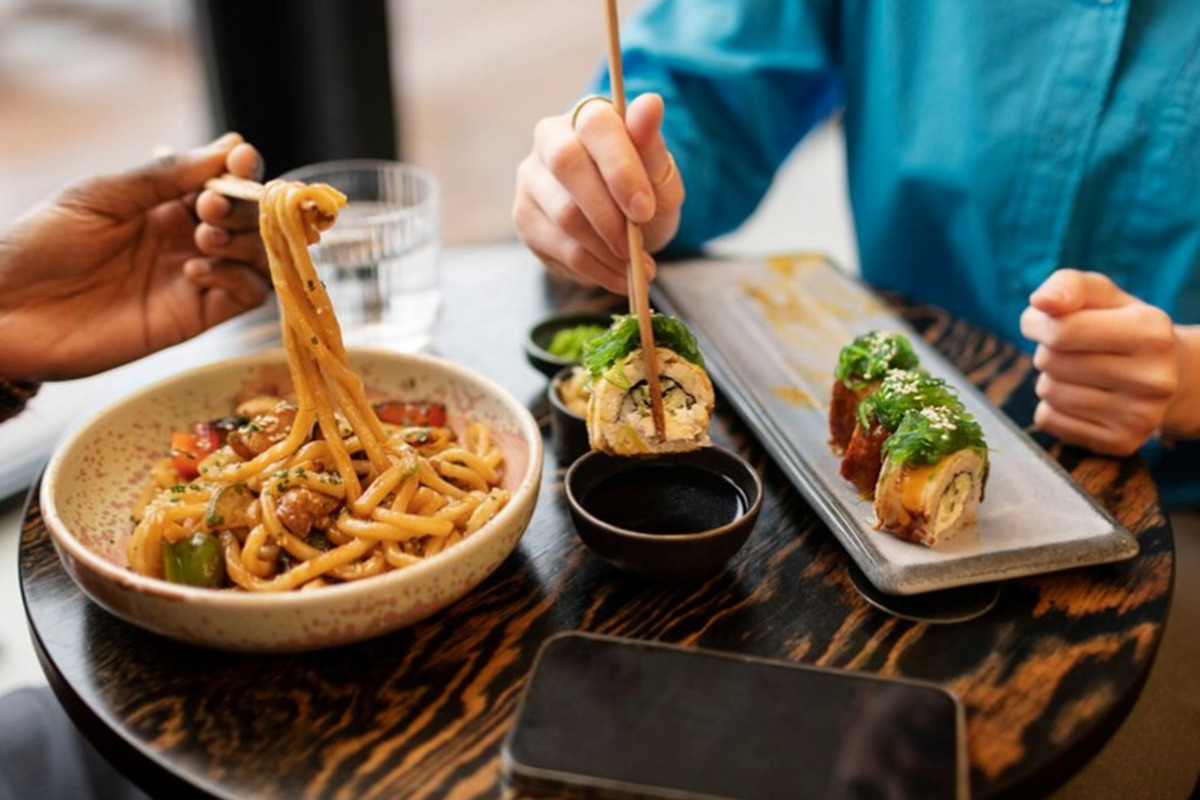A new era of fast food: Muscovites truly fall in love with Chinese delicacies
[ad_1]

Chinese cuisine has long become a classic: it has been damn popular all over the world for decades, everywhere except Russia. Our compatriots, who prefer a gastronomic turn to the East, for a long time remained faithful to Japan with its sushi and rolls (though changed beyond recognition by American adaptation), then they began to look towards Vietnam, ready to offer a kilogram bowl of pho bo soup and a sweet mango shake, and in Over the last couple of years, we have fallen in love with Korean teokbokki rice sticks and spicy breaded chicken, which are accompanied by the incredibly “bee-bee-bee” design of the establishments. Well, China seemed to remain the most obvious and background, but at the same time forgotten. Until recently.
Now Muscovites seem to have come to their senses and decided to make up for all the lost years of love affair with Chinese gastronomy at once. If not in a qualitative sense (well, to say that many are ready to seriously understand the differences between Sichuan, Cantonese or Uyghur cuisines is still overly optimistic), then at least in a quantitative sense. A few years ago, pan-Asian noodle shops turned into a favorite alternative to banal cafeterias with cutlets and borscht for the office plankton – fast, tasty, satisfying (how could it be otherwise, if a serving of pho bo looks like a “kilo of food”!), and, well, not without interest.
Meeting a courier there was an exception rather than a rule – such food was not ordered, people came to eat it on the spot. Last week showed the game according to new rules – now boxes with Chinese noodles, crispy eggplants and pork in sweet and sour sauce are packed one by one into courier bags, and the couriers themselves in yellow and green uniforms flooded Asian cafes just like a couple of years ago they unobtrusively took over the burger joints. And in this case, the demand – which entailed supply – was formed by Muscovites themselves, and quite quickly.
“I thought it would be a good idea to have a Chinese-style dinner and celebrate at the same time. I ordered Peking duck at a restaurant that I have known for a long time. But when they called me back to confirm the order, the operator warned that I would have to wait at least three hours for the duck. I ask why? A month ago they delivered it in an hour. She laughs: they say, can’t you guess? That’s how I learned that celebrating the Chinese New Year has become mainstream,” a young Muscovite named Irina told MK.
A single episode could be considered an accident, but similar things happened in Moscow last week very often: that means it’s already a pattern. Muscovites obviously liked the idea of celebrating Chinese New Year, at least in the gastronomic aspect.
— There are no ducks now. And probably won’t be until the evening,” an employee of a Chinese cafe at one of the fashionable Moscow markets with a food court answered laconically on Friday evening. – Why not? Yes, they ate it! Come back tomorrow.
In another Chinese establishment they reassure: if the client wants a duck, the client will get the duck, the oven will handle it. But carp in sweet and sour sauce, a traditional Chinese New Year’s dish, must be ordered in advance – preferably at the time of booking a table (well, without a reservation, you shouldn’t go to Chinese restaurants at all these days).
However, few people take aim at our Sichuan carp. Peking duck is the most banal and most accessible thing that Muscovites can remember when it comes to Chinese cuisine. Although it cannot be called affordable in terms of price – a small portion (100 grams of meat) costs on average 550-600 rubles, and a whole duck in restaurants today sells for 3500-4000 rubles. Among those who want to experience beauty and still save money, noodles or rice with duck, steamed buns with it, as well as a sandwich with duck, rolled up like a shawarma, are popular.
By the way, with shawarma, which by default is recognized as the most accessible and inexpensive fast food, not everything is going smoothly either – at the end of February 2024 they started talking about the fact that stalls selling “meat sliced in pita bread” (as shawarma was dubbed ten years ago) the city will become significantly smaller. There are several factors here: difficulties with rent, an increase in the cost of products and, most importantly, a decrease in demand. Maybe Muscovites have finally had their fill of shawarma – aka shawarma, aka doner kebab – and are now looking for new sensations?.. Well, at least ducks?
Meanwhile, at the other end of the country, in Vladivostok and its environs, the word “chifanki” has long become a synonym for fast food – this is how Chinese eateries are usually called. Their main distinguishing features are authenticity and cheapness, as well as the categorical reluctance of the owners (who come from China) to adapt to the tastes of the average Russian. However, the locals even like it – you won’t surprise them with Chinese food for a long time. So an interesting trend is emerging: while the European part of Russia is hesitating whether to call all the fast food en masse “shawarma” or “big-mac”, occasionally remembering the traditional “pirozhki”, in Primorye they have long ago found their own special gastronomic path – a road paved with baozi marinated dumplings eggs and kilometers of curly noodles.
[ad_2]
Source link








